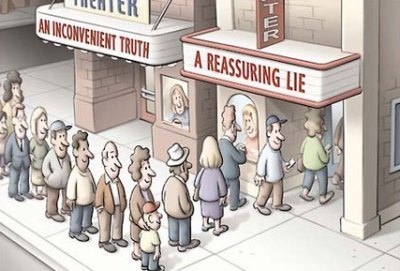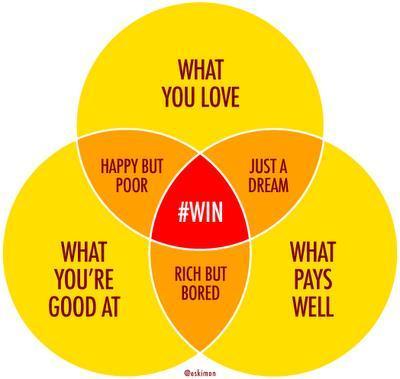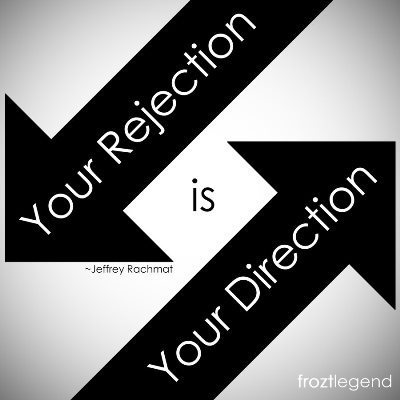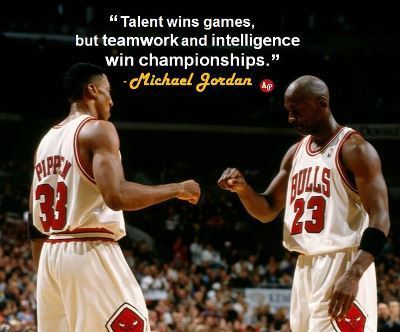Jeremie Averous's Blog, page 122
April 10, 2014
How Emotional Experience is Key for Overcoming Fear and Creating Change
Change creates fear. Titus said “We fear things in proportion of our ignorance of them“. Hence one of the easiest ways to help people and organization change would be to educate them. While it does work now and again, however, it has been constantly proven that this is a very ineffective strategy. Education does play a role, but it is personal experience at the emotional level that is important to effectively create change.

Fear. Just Fear.
Fear is deeply emotional. The rational mind can tame some of it, but it is a long and difficult process. Educating people as a way to support change had long been quite a dismal strategy to elicit change (anti-alcohol and tobacco campaigns being good examples), although it is still supported by many rational minds.
Creating deep emotional experience is much more effective. Change management programs should probably aim at creating these emotional experiences as a way to support change rather than over-rationalizing what factors are at play to prevent change.
Creating emotional experiences can be tough to design in corporate environments, but are not impossible. They include leveraging on the connections between people and pushing people outside their comfort zone. They including pushing people to discomfort. Change management programs would need to include these elements but often do not for fear of rejection by the sponsors.
If you want real change, tackle it at an emotional level and make sure to create enough discomfort to elicit real transformation.

April 8, 2014
Why We Reject Inconvenient Truths – an Impediment to Change
We reject inconvenient truths – as long as they stay remote enough not to disturb too much our lifestyles. And so we stay in our comfort zone while disaster is looming further away, and although the consequences might be much more dire in the future.
 Change is about looking at reality in the face. Not to over-dramatize, but to be aware of what really happens outside there.
Change is about looking at reality in the face. Not to over-dramatize, but to be aware of what really happens outside there.
It is not easy and it is not natural. And it is why those that describe the reality of things are often rejected. And why those that create and transmit reassuring messages are popular.
The only way to overcome this hurdle is to create visible change in the life of the people that strike them at the emotional level. There is unfortunately no other way.
Want change without some dose of suffering? That won’t be possible. Just make sure that it is bearable and that measures are in place to overcome the challenge when it will have been noted by the group.

April 5, 2014
How to Achieve Success
To achieve success, don’t aim at success!
 That is essentially what Viktor Frankl (author of ’Man’s Search for Meaning‘) advises. Achieve success by not thinking about success but putting in the hard work, dedication and commitment that is necessary to achieve great things.
That is essentially what Viktor Frankl (author of ’Man’s Search for Meaning‘) advises. Achieve success by not thinking about success but putting in the hard work, dedication and commitment that is necessary to achieve great things.
“Don’t aim at success – the more you aim at it and make it a target, the more you are going to miss it. For success, like happiness, cannot be pursued; it must ensue, and it only does so as the unintended side-effect of one’s dedication to a cause greater than oneself or as the by-product of one’s surrender to a person other than oneself. Happiness must happen, and the same holds for success: you have to let it happen by not caring about it“.
And it is very true in my personal experience: every time I have been very successful, it was when I was concentrating on doing my best work independently of any thought about success and how people would judge me.
Are you concentrating on doing your best work instead of thinking how to achieve success?

April 3, 2014
How Negotiating is Different from Selling and Why they Should be Split
“When you are negotiating, you have to say no a lot. When you are selling, you are always trying to find the ‘yes’“, writes James Altucher in his book ‘Choose Yourself‘. He goes on to explain that it is difficult for the same individual to be good on the two roles.
 This observation makes sense – negotiating means achieving a balanced agreement in which both parties’ interests are preserved and enhanced; it is quite different from the sale perspective which might be considered focused on bringing business – promising everything the client could want.
This observation makes sense – negotiating means achieving a balanced agreement in which both parties’ interests are preserved and enhanced; it is quite different from the sale perspective which might be considered focused on bringing business – promising everything the client could want.
That is certainly an interesting perspective, because in most organizations I know, the sale people are also the ones driving as well the negotiations before the finalized contract is handed over to the rest of the organization for execution. This observation would mean splitting much more clearly than it is now, the sale function from the contract negotiation team, and make sure that the chief negotiator is not just trying to close the sale, but also has in mind other issues such as legal protection of the organization, actual feasibility of the agreement etc.
Who is facing the client in your organization? And how do you make sure you involve a negotiator before the sale is closed?

April 1, 2014
How We Always Have a Choice, Even in the Worst Situation
I just finished one of most powerful books I ever read: ‘Man’s Search for Meaning‘ by Viktor Frankl. A psychologist, Viktor Frankl has been interned in the Nazi concentration camps, and survived. In the book he gives an account of his atrocious experience at the edge of what humans can endure (and beyond what most humans can endure) – with the point of view of a psychologist.
 This book is emotionally extremely powerful and very profound as well. Frankl states that “There is nothing conceivable which would so condition a man as to leave him without the slightest freedom“. Even in the worst possible external conditions, barely surviving to cold, hunger and abominable treatments, man can still keep its internal freedom intact.
This book is emotionally extremely powerful and very profound as well. Frankl states that “There is nothing conceivable which would so condition a man as to leave him without the slightest freedom“. Even in the worst possible external conditions, barely surviving to cold, hunger and abominable treatments, man can still keep its internal freedom intact.
The books also explains vividly why certain people do cope with terrible conditions and survive while others will soon reach despair and die. It all depends on whether life keeps meaning at the present moment.
The lesson is summarized in the following way: “Man is not fully conditioned and determined but rather determines himself whether he gives in to conditions or stands up to them. In other words, man is ultimately self-determining“.
Read the book, it will change your view of life, and at the same time make you so grateful for the normal lives we live today. And even if you feel you are trapped in the worst possible situation, realize that you still have the choice to determine yourself.

March 29, 2014
Why Procrastination is Useful (Sometimes)
In this blog we have written often about the concept of Resistance and how to overcome it. Overcoming resistance is beating procrastination. But maybe procrastination is not such a bad thing, after all, at least sometimes.
 That’s at least what James Altucher suggests in his book ‘Choose Yourself‘: “Procrastination is your body telling you that you need to back off a bit and think more about what you are doing“.
That’s at least what James Altucher suggests in his book ‘Choose Yourself‘: “Procrastination is your body telling you that you need to back off a bit and think more about what you are doing“.
After reflection, I believe this is true in some instances, in particular when it comes to a creative endeavor. Sometimes we procrastinate because the meaning or the objective of what we intend to do is unclear, and then, in that case, it might be worth thinking twice before undertaking our project. When we are fully motivated, procrastination never appears.
Remains the issue of chores and those things we need to do but are not particularly pleasant. In that case, procrastination is obviously an issue.
It is important to distinguish between chores and creative endeavors. If on a creative endeavor, procrastination appears, ask yourself if what you are doing is the right thing to do!

March 25, 2014
Why We Can Elicit Criticism by Just Being Present
Aristotle said “there is only one way to avoid criticism: do nothing, say nothing, and be nothing“.
 Again and again I find that I do my best work when I expose myself. And often when I push myself at the edge, or even beyond the limit of my comfort zone. When it is tough and I feel inadequate, where the impostor syndrome hovers in the background. Of course, that is also where one is more vulnerable to criticism.
Again and again I find that I do my best work when I expose myself. And often when I push myself at the edge, or even beyond the limit of my comfort zone. When it is tough and I feel inadequate, where the impostor syndrome hovers in the background. Of course, that is also where one is more vulnerable to criticism.
What I find particularly interesting in Aristotle’s quote is the relation to being. That simply, being somebody, and being present, necessarily exposes to criticism as well.
There is no doubt that just being there in the world, even doing or saying nothing, does change the world a little. There is no hiding from it. Simple observation does change what is being observed. I know from my coaching practice that sometimes, just being silent, and fully present, can be a great vector of change in people and groups. It can be extremely powerful.
It leads to a reaction from the environment, which will resist, often in the shape of criticism. And that is where be absolutely need to be ourselves, and take the best part of the inevitable criticism.
We are, thus we change our surroundings, thus the surroundings will resist. Be aware that criticism can come also from just being here, and fully present.
Other Fourth Revolution posts on overcoming criticism: ‘What should you do with Criticism?‘ and ‘How can you stop trying to please everyone?‘

March 22, 2014
How to Find Your Sweet Spot
I like the enclosed schematics which is very much inspired from the work of Jim Collins (Good to Great, etc.).

Where is Your Sweet Spot?
What is says is basically that the Sweet Spot you should seek lies at the intersection of what you are passionate doing, what you are good at (word class) and what pays well. There are other possible locations in between these different poles, which are also possible to sustain, with advantages and drawbacks.
Of course, this is not all independent: if you love doing something there are more chances you will become good at it.
You might also decide to combine simultaneously a job (where you are good at it and it pays well), and a hobby (where you are passionate and good at it).
Anyway, this is an interesting framework to classify your hobbies and activities and check there is sufficient balance in your life. Check your activities against it, it might inspire you!

March 20, 2014
Why You Should Seek Rejection
“Without rejection there is no frontier, there is no passion, and there is no magic” – James Altucher, in ‘Choose Yourself‘.
 This is quite an unconventional thought. People fear rejection. Some do manage rejection in a defensive manner so as to achieve certain goals (for example, salespeople). Many people believe that rejection certainly shows that what we try to do is not the right thing, and pushes us to try new directions.
This is quite an unconventional thought. People fear rejection. Some do manage rejection in a defensive manner so as to achieve certain goals (for example, salespeople). Many people believe that rejection certainly shows that what we try to do is not the right thing, and pushes us to try new directions.
Should we go further, be fully contrarian, and embrace rejection as a welcome hint that we are on the right way? That is exactly what James Altucher suggests.
On the same level as suggesting that we should push beyond our comfort zone, getting rejection requires that we have done something and that it is not conventional. It is a great result – although maybe a bit discouraging – that shows that we are passionately on the path of magic and creation. It just shows that we need to be persistent in our efforts, that we are creating something new.
Seek rejection with passion as you seek to go beyond your comfort zone. Eventually you’ll be recognized for what you are doing. Rejection shows you are on the right path.

March 18, 2014
How Joint Teamwork is Key to Success on the Long Term
“Talent wins games, but teamwork and intelligence wins championships” – Michael Jordan. The star basketball player certainly experienced what he talks about.
 On the long term, team work and collective intelligence is the key to success. Even if on the short term, sheer talent or luck can decide the individual day.
On the long term, team work and collective intelligence is the key to success. Even if on the short term, sheer talent or luck can decide the individual day.
I confirm this observation as well in large project teams. Effective teamwork, lack of a blame culture when there is an inevitable setback, that is what makes victory possible on the long term.
Even when there is a setback, concentrate on teamwork and getting clever about the situation. Let yourself not be beaten by bad luck or insufficient talent. You can still win on the long term, if you rely on the joint effort of the brains of your team.




